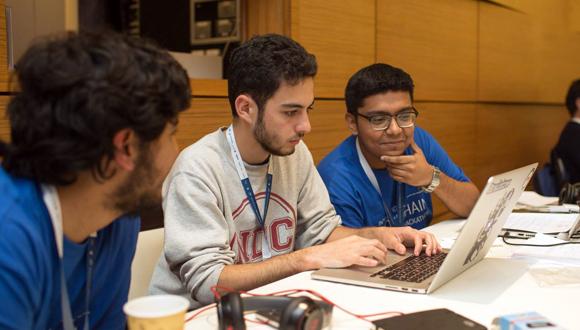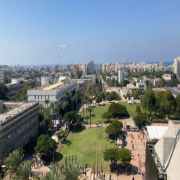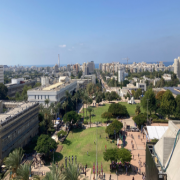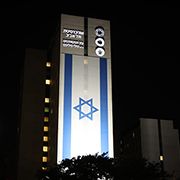TAU students win prizes at blockchain hackathon
International engineering students won an award for their innovative registration and tracking technology
A group of students from TAU’s International B.Sc. Electrical and Electronics Engineering from The Iby and Aladar Fleischman Faculty of Engineering has won second place at the international Blockchain Hackaton, held at the Stock Exchange in Tel Aviv on March 29-30th.
The Hackaton, held jointly with companies such as Intel, Deutsch Bank, HSBC and KPMG, was meant to test the strategy of blockchain – conducting business actions using peer-to-peer sharing, without an overseeing administrator for regulation. This business strategy, first implemented with the invention of the virtual currency “bitcoin”, is considered groundbreaking in the business world. Experts in the field estimate it will become more and more common in the future.
The groups competing at the hackathon were divided into two categories: students and companies. Among the winning group from TAU were the international students Taklikar Ashutosh, Patrick Marciano and Akash Jog.
“After 36 hours of hard work, three proposals, four hours of sleep and lots of coffee, we won second place,” said Patrick Marciano, a second-year student and the head of the group. “Our award was a drone for every member of the group, a certificate and a very long weekend of catching up on all the classes we missed because of the hackaton.”
In addition to the drone given to each student, the group received an additional drone, which they decided to donate to the School of Electrical Engineering.
Claiming dynamic ownership
“Our first idea was a database of bicycles using blockchain technology, which would allow tracking the ownership and location of every registered bicycle in Tel Aviv,” Marciano said. “Blockchain registration would be decentralized and open, so anyone could access the database with no need for admin approval – which would make it entirely dynamic and free.”
According to Marciano, after the group developed the database, its members realized it could be used to register almost anything. Bicycles, cars, phones or luxury items. “Our network allows anyone to claim dynamic ownership of an asset, and cheating is impossible. Since the panel of judges was made up mostly of bankers, we showed them that the network allows a bank to sell mortgages for any property – and track the ownership of that property continuously and for free.”





